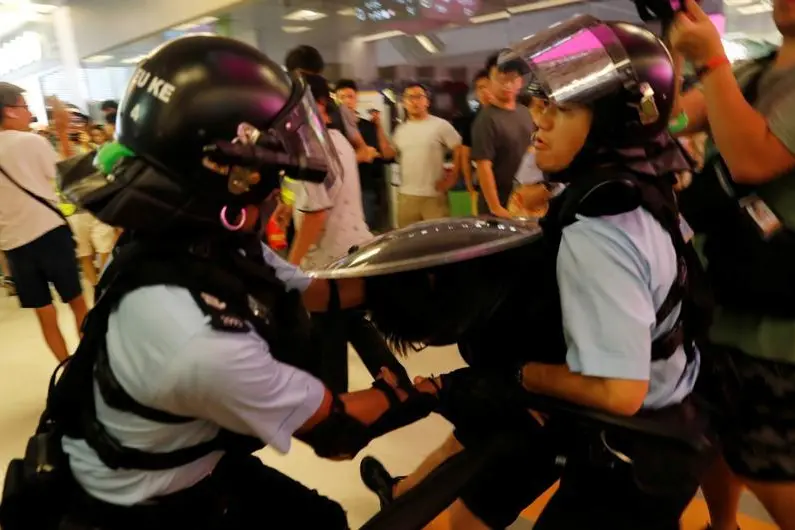PHOTO
HONG KONG - Baton-wielding Hong Kong police moved in to break up scuffles on Saturday between pro-China protesters and those denouncing perceived Chinese meddling at the start of rallies planned for across the city after months of often violent unrest.
The pro-China demonstrators chanted "Support the police" and "China, add oil" at a shopping mall in the Kowloon Bay area, adapting a line used by anti-Hong Kong government protesters and loosely meaning: "China, keep your strength up".
"Hong Kong is China," one woman shouted at passersby who shouted obscenities in return in an angry pushing and pulling standoff, marked more by the shouting than violence.
The clashes spilled out on to the streets, with each confrontation captured by dozens of media and onlookers on their smart phones. Police detained several people.
Protesters complaining about perceived Chinese interference in the former British colony came out in their hundreds across the territory on Friday, singing and chanting on the Mid-Autumn Festival, in contrast to the violence of many previous weekends when police have responded with tear gas, rubber bullets and water cannon.
They have also gathered in malls, with occasional scuffles with flag-carrying China supporters, often denouncing police for perceived brutality.
Anti-government protesters were also gathering in the downtown Central district and hundreds were marching in the northwestern New Territories district of Tin Shui Wai.
The spark for the anti-government protests was a now-withdrawn extradition bill and concerns that Beijing is eroding civil liberties, but many young protesters are also angry about sky-high living costs and a lack of job prospects.
The bill would have allowed people to be sent to mainland China for trial in Communist Party-controlled courts, but the protests have now broadened into calls for greater democracy.
Hong Kong returned to China under a "one country, two systems" formula that guarantees freedoms not enjoyed on the mainland - including a much-cherished independent legal system.
China says Hong Kong is now its internal affair. It says it is committed to the "one country, two systems" arrangement and denies meddling in Hong Kong's affairs.
China is eager to quell the unrest before the 70th anniversary of the founding of the People's Republic of China on Oct. 1. It has accused foreign powers, particularly the United States and Britain, of fomenting the unrest.
(Reporting by Twinnie Siu, Jessie Pang, Martin Pollard, Poppy McPherson Writing by Nick Macfie Editing by Robert Birsel)





















